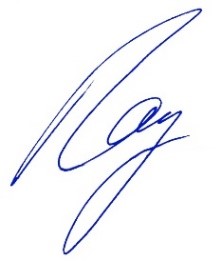Danielle: Chronicles of a Superheroine
Preface
Ray Kurzweil
In 1955, when I was seven, I recall my grandfather describing his first return trip to Europe, seventeen years after he had fled Hitler in 1938. He had been given the opportunity to handle, with his own hands, Leonardo da Vinci’s original notebooks containing descriptions and illustrations of his inventions. He described this experience in reverential terms. Yet these were not documents written by God, but by a human. This was the religion, if you will, I grew up with: the power of human ideas to change the world. This philosophy was personalized: you, Ray, can find those ideas.
To this day, I continue to be convinced of this basic philosophy. No matter what quandaries we face—business problems, health issues, relationship difficulties, the great social and cultural challenges of our time—there exists an idea that will enable us to prevail. We can and must find that idea. And when we find it, we need to implement it.
My mother’s mother’s mother Regina Stern followed this philosophy. In 1868 she saw girls did not have the opportunity for schooling past ninth grade, so she and her family started the Stern Schule, the first school in Europe that provided higher education for girls, going from kindergarten to fourteenth grade (high school and the first two years of college). The idea was met with fierce opposition, and my great-grandmother lectured throughout Europe on why girls should be educated and how to go about it. Her school became influential on the education of girls and women. Her daughter, my grandmother, became an exemplar of her mother’s philosophy and became the first woman in Europe to be awarded a PhD in chemistry. She took over the school, and between the two women they ran it for seventy years before fleeing Vienna in the summer of 1938, after Hitler annexed Austria. In 1948, she wrote an autobiography and history of the school titled One Life Is Not Enough, presaging my interest in life extension. When I was five she showed me the mechanical typewriter she wrote her book on, which inspired me to become an inventor, but that’s another story.
Over the last thirty years, I have come to appreciate an important meta-idea: that the power of ideas to transform the world is itself accelerating. Although people readily agree with this observation when it is simply stated, it is much harder to appreciate its profound implications. Within the next several decades, we will have the opportunity to apply ideas to conquer age-old problems—and introduce a few new ones along the way.
This, then, is Danielle’s philosophy. If Danielle’s exploits seem remarkable, I would point out that each of her accomplishments are achievements that a person, even a child, can do today. Indeed, young people are already changing the world. The major tech companies—Microsoft, Apple, Google, which together are worth almost two trillion dollars and have indeed transformed the world—were started by students barely over twenty. We see high school kids creating transformative ideas, such as early noninvasive tests for cancer, new approaches to treating Alzheimer’s disease, and techniques for reverse-engineering the brains of animals.
Is there a Danielle in the world today? From one perspective, anyone can be a Danielle, at least in part, by having the courage to question the assumptions that limit human imagination to solve problems. The companion book, How You Can Be a Danielle, provides guidance for would-be Danielles.
How about a person with the extremely broad range of Danielle’s courage and talent? She may not exist, at least not yet. This novel is a thought experiment as to what would happen if there were a Danielle.
However, as I articulate in my nonfiction books, in the decades ahead we are going to merge with the intelligent technology we are creating. This novel explores the impact a single Danielle can have on the world. Now imagine if we all became Danielles. That will happen by 2045.
 |
| Ray Kurzweil |
